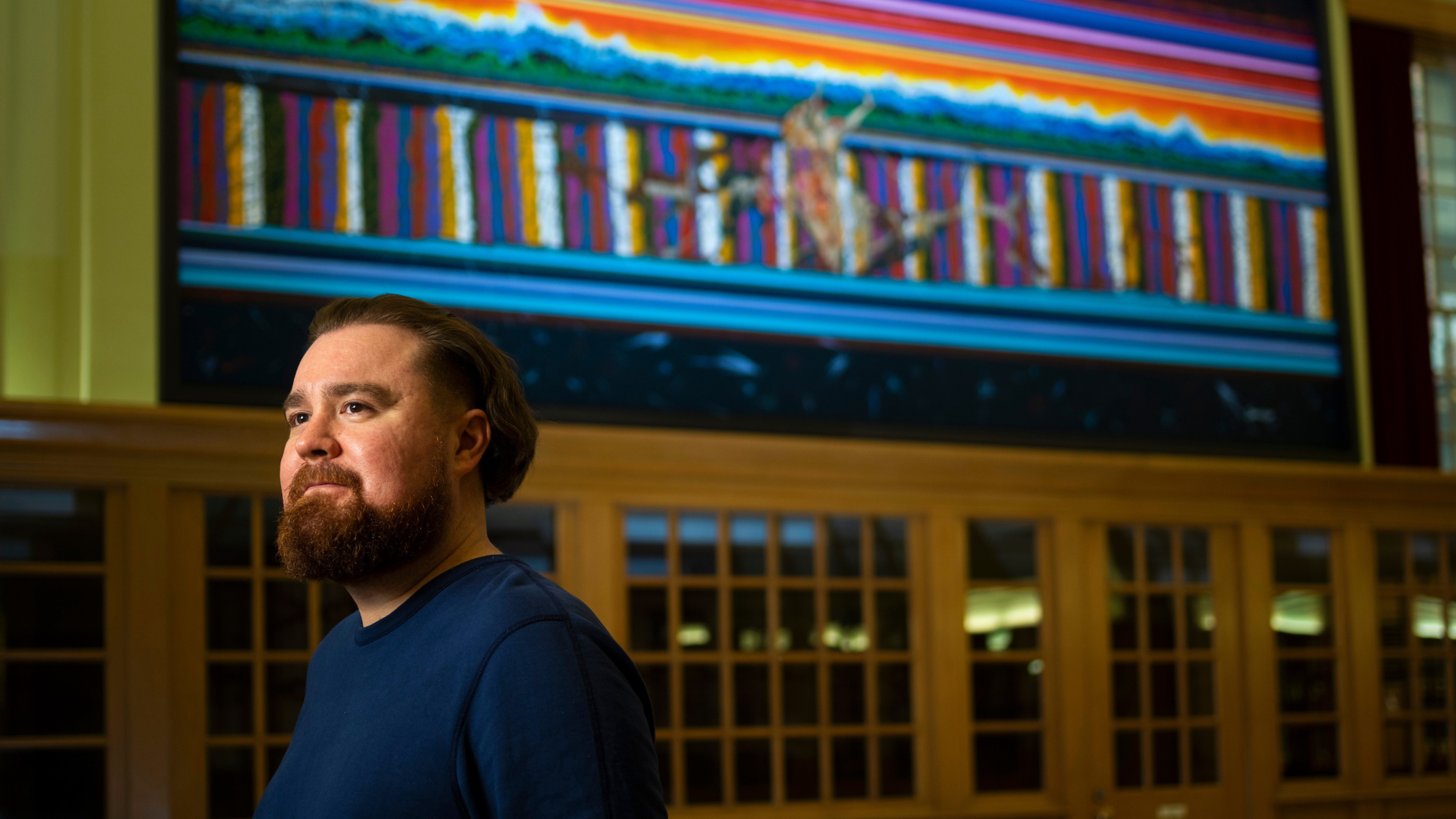Goal 16: Peace, Justice and Strong Institutions

research impact
For the period 2017-2021
№ relevant publications: 478
№ times cited: 17,222
Key Stats
254 graduates from law and enforcement-related courses in 2021
sample Courses
- LAW 507 - Canadian Human Rights Law
- LAW 559 - Environmental Law and Policy
- NS 240 - Introduction to Indigenous Legal Issues
- NS 345 - Governance in Indigenous Nations
- NS 442 - Colonialism and the Criminal Justice System
News
Stewardship
Community Engagement Consultation Plan
The Community Engagement Consultation Plan contains the results of a year-long consultation with internal and external university stakeholders, along with initiatives and measures that we plan to undertake in order to put the community’s feedback directly into practice. This plan will support community engagement work over the coming years and aims to strengthen community engagement in its many forms across our campuses.
Freedom of Speech
In 2019, the Board of Governors released a Statement on Freedom of Expression at the University of Alberta that commits to free expression, including non-violent protest and dissent.
The University of Alberta provides a neutral platform and safe space for different political stakeholders to come together to discuss challenges. These spaces are protected by two policies:
- Statement on Freedom of Expression at the University of Alberta.
- The Short-Term Casual Event Booking Procedure prioritizes intellectual freedom and freedom of speech: “The University values the expression of diverse points of view. Where the event is lawful and compliant with University policies and procedures, content will not be a factor in determining approval to use University space for short-term casual events unless the event competes with existing University programs.”
Examples of these spaces include:
- University of Alberta Centres and Institutes. Representing a diverse range of research expertise, the U of A Centres and Institutes engages in scholarship and advances the mission of the University of Alberta through specific attention to particular areas of study or research.
- The Department of Political Science hosts a variety of events and workshops.
- The Annual Hertig Lecture Series provides a national platform at the University of Alberta to promote informed dialogue about the choices and values that will shape the future of Canada.
- Over 300 Student Clubs where students with common interests can meet.
University of Alberta’s principles and commitments to prevent organized crime, corruption and bribery
These principles and commitments are found in many policies and University regulations.
Fraud and Irregularity, Human Resources, Health, Safety and Environment
We do not engage in fraudulent activity, deliberately or unlawfully deceiving, misrepresenting or concealing facts in order to secure advantage, benefit or gain and/or cause loss to another. We understand that fraud encompasses a range of actions, including misrepresentation of material facts, concealment of material facts, bribery, undeclared conflict of interest, theft of money or property, theft of intellectual property, theft of identity, breach of fiduciary duty, and statutory offences.
Statement of Ethical Conduct, Human Resources, Health, Safety and Environment
This Statement is intended to provide an overview of the standards and aspirations for ethical conduct that representatives of the University of Alberta community strive to uphold. It also serves as a reference for university-wide policies and supporting documents that address ethical conduct.
Restrictions on the Receipt and Acceptance of Gifts and Event Invitations, Human Resources, Health, Safety and Environment
There are restrictions on the receipt and acceptance of gifts and event invitations to prevent the creation of an actual or perceived conflict of interest.
Code of Student Behavior
Included in the Code of Student Behavior are descriptions of unacceptable behaviour for Students in the University, the sanctions for commission of the offences, and explanations of the complete discipline and appeal processes.
Outreach
Visiting Lectureship in Human Rights
Each year, University of Alberta International invites an individual or organization that has made an outstanding contribution in the field of human rights and human rights protection to deliver a major public lecture in Edmonton. The first Lectureship, held in the fall of 1998, coincided with the 50th anniversary of the proclamation of the United Nations Declaration of Human Rights. Speakers have included Desmond Tutu, Louise Arbour, Romeo Dallaire, Irene Khan, Wilton Littlechild, Mary Robinson, and Kwame Anthony Appiah.
🔗 U of A, City of Edmonton join international network of city-university partnerships
The MetroLab Network was launched as a result of the White House Smart Cities Initiative in 2015 as a way to share information, best practices and solutions to common challenges faced by cities around the world. Under each partnership, the university is the city's R&D department and the city is the test bed.
The University of Alberta also provides expert advice to local, regional and national governments through policy guidance, participation in committees and provision of evidence. Some notable examples are directly below.
Alberta Land Institute
Founded at the University of Alberta, the Alberta Land Institute is an independent research institute that works with and contributes expert advice to all levels of government around the use of land, water and natural resources.
Alberta Centre for Sustainable Rural Communities
The Alberta Centre for Sustainable Rural Communities on the University of Alberta’s Augustana Campus engages with local, provincial, regional, and national governments and communities in projects that seek to create resilient rural communities across Canada.
Edmonton’s Energy Transition Climate Resilience Committee
University of Alberta academics and researchers, as members of the City of Edmonton’s Energy Transition Climate Resilience Committee, provide expert advice and evidence that lead to strategies and effective implementation plans related to energy transition and climate resilience in Edmonton.
Research
🔗 How police departments can identify and oust killer cops
U of A sociologist Temitope Oriola runs through the evidence and best practices for removing violent officers from the ranks of Canada’s police.
Notable Stories
Palestinian student creates "peace library" to bring hundreds of books to kids in her hometown.


